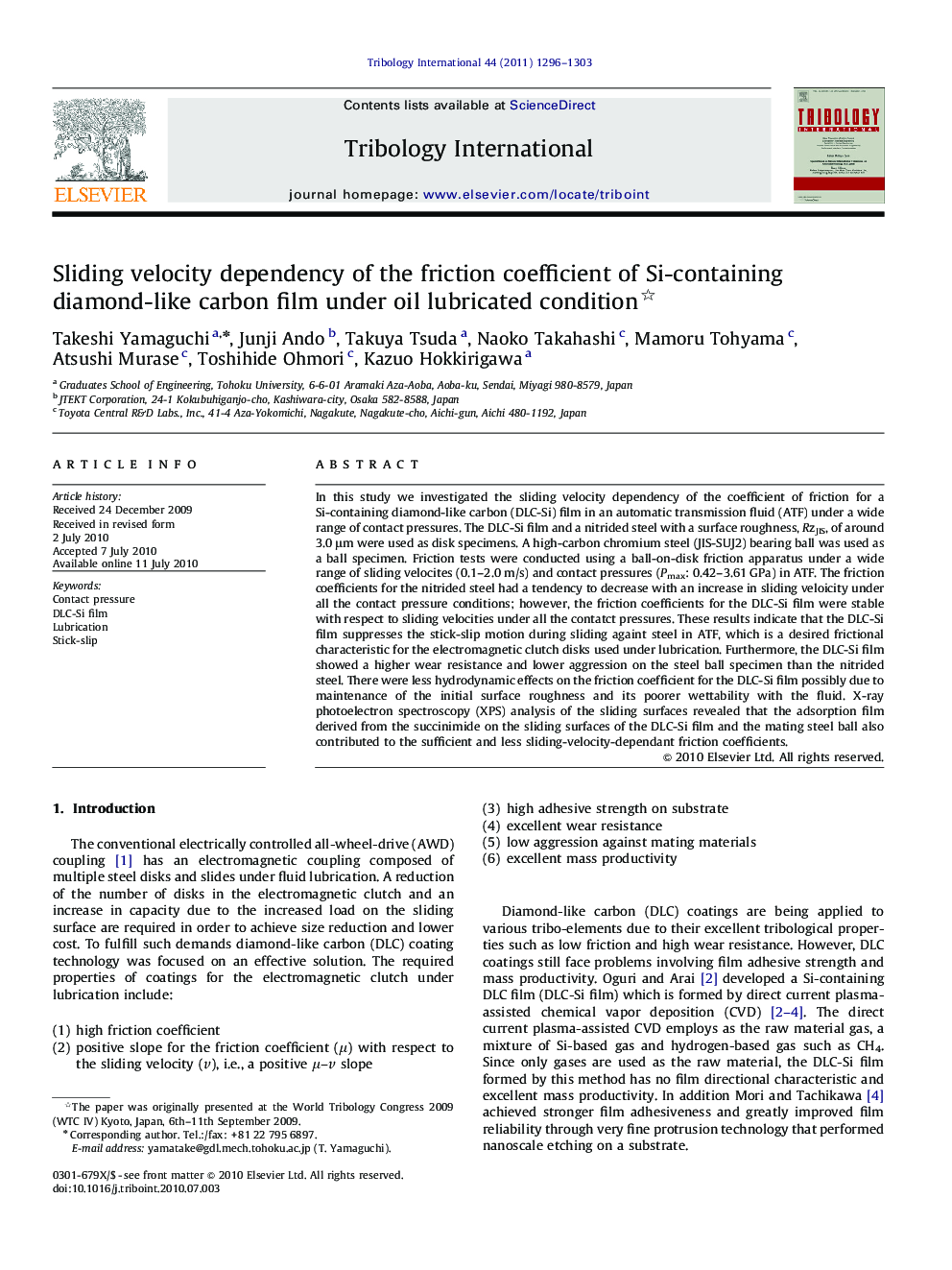| Article ID | Journal | Published Year | Pages | File Type |
|---|---|---|---|---|
| 615429 | Tribology International | 2011 | 8 Pages |
Abstract
In this study we investigated the sliding velocity dependency of the coefficient of friction for a Si-containing diamond-like carbon (DLC-Si) film in an automatic transmission fluid (ATF) under a wide range of contact pressures. The DLC-Si film and a nitrided steel with a surface roughness, RzJIS, of around 3.0 μm were used as disk specimens. A high-carbon chromium steel (JIS-SUJ2) bearing ball was used as a ball specimen. Friction tests were conducted using a ball-on-disk friction apparatus under a wide range of sliding velocites (0.1-2.0 m/s) and contact pressures (Pmax: 0.42-3.61 GPa) in ATF. The friction coefficients for the nitrided steel had a tendency to decrease with an increase in sliding veloicity under all the contact pressure conditions; however, the friction coefficients for the DLC-Si film were stable with respect to sliding velocities under all the contatct pressures. These results indicate that the DLC-Si film suppresses the stick-slip motion during sliding againt steel in ATF, which is a desired frictional characteristic for the electromagnetic clutch disks used under lubrication. Furthermore, the DLC-Si film showed a higher wear resistance and lower aggression on the steel ball specimen than the nitrided steel. There were less hydrodynamic effects on the friction coefficient for the DLC-Si film possibly due to maintenance of the initial surface roughness and its poorer wettability with the fluid. X-ray photoelectron spectroscopy (XPS) analysis of the sliding surfaces revealed that the adsorption film derived from the succinimide on the sliding surfaces of the DLC-Si film and the mating steel ball also contributed to the sufficient and less sliding-velocity-dependant friction coefficients.
Related Topics
Physical Sciences and Engineering
Chemical Engineering
Colloid and Surface Chemistry
Authors
Takeshi Yamaguchi, Junji Ando, Takuya Tsuda, Naoko Takahashi, Mamoru Tohyama, Atsushi Murase, Toshihide Ohmori, Kazuo Hokkirigawa,
